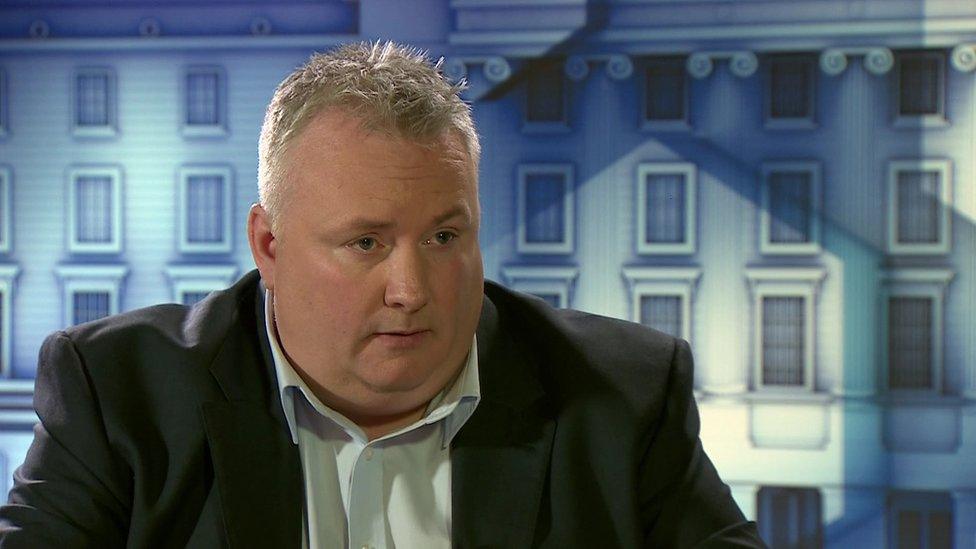BBC pay: Stephen Nolan's pay falls due to fewer shows
- Published
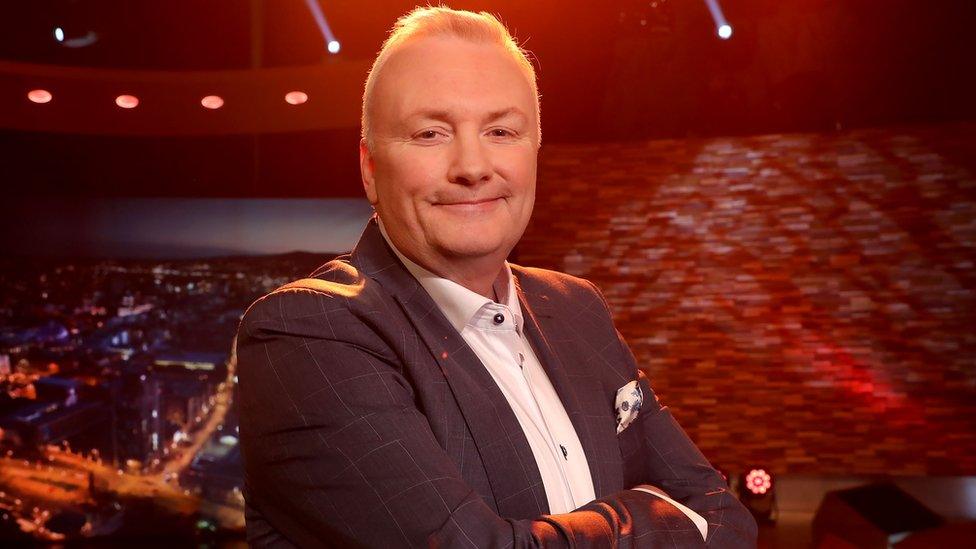
Stephen Nolan earned between £325,000 and £329,999 from the licence fee in 2018-19
The BBC presenter Stephen Nolan's pay fell by about £75,000 in 2018-19.
He earned between £325,000 and £329,999 from the licence fee, compared with just over £400,000 in 2017-18.
The figure is contained in the BBC's latest annual report, which gives details of the pay of its top earning stars.
The reduction in Mr Nolan's pay is mainly down to the fact he presented 40 fewer radio and TV programmes in 2018-19 than the previous year.
Mr Nolan no longer presents Question Time Extra Time on BBC Radio 5 Live on Thursday nights, which accounts for 30 of the programmes.
The report also reveals that the pay of BBC Northern Ireland director Peter Johnston rose.
He earned between £175,000 and £179,999 in 2018-19, compared with between £150,000 and £159,999 the year before.
Mr Nolan and Mr Johnston are the only two figures who work mainly in BBC Northern Ireland whose salaries were revealed in the report.
It also states that Mr Nolan presented 210 programmes on BBC Radio Ulster, 10 editions of the television show Nolan Live and 120 programmes on BBC Radio 5 Live.
Under the terms of the BBC's charter it has to publish the details of those who earn more than £150,000 a year from the licence fee.
Details of the pay of stars working on programmes for BBC Studios - the corporation's commercial arm - are not included in the figures.
Lineker's high score
Payments stars receive from independent production companies are also not revealed.
Gary Lineker was again the BBC's best paid star, earning about £1.75m during the year.
Claudia Winkelman and Zoe Ball were the best paid female presenters, earning between £370,000 and £374,999.
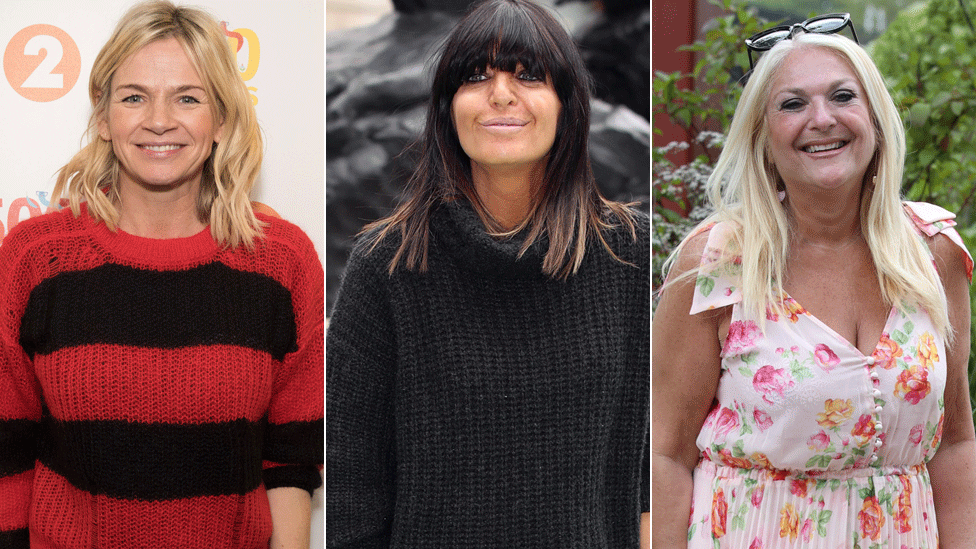
Zoe Ball, Claudia Winkleman and Vanessa Feltz have all moved up the list
Of the pay that is being made public, 75 BBC presenters earned more than £150,000 in 2018-19 - 45 men and 30 women.
Data for 2019-20 in the report suggests that 74 will earn more than £150,000 this year - 41 men and 33 women.
There has been controversy over the salaries paid to the BBC's top earning stars and staff, especially within the context of the corporation's recent decision to scrap free TV licences for around 3.7 million pensioners.
There has also been controversy over the gender pay gap at the BBC, though the latest report suggests the gap is closing.
Gap closing
The report reveals the gap between the average yearly earnings of men and women working for the BBC has fallen from 7.6% in 2017-18 to 6.7% in 2018-19.
"The BBC is well ahead of other organisations but we're still not where we want to be," the report said.
The 2018-19 annual report also gives some details of how the BBC's budget is spent and its audience figures in Northern Ireland.
In 2018-19, the BBC spent 3.1% of its overall television network expenditure in Northern Ireland, the same level as two years ago but up from 2.4% in 2017-18.
Belfast has been a fantastic home for Line Of Duty, says writer Jed Mercurio
Dramas set in Northern Ireland broadcast during the year, for instance, included Come Home and Death And Nightingales, while others like Line Of Duty and Mrs Wilson were filmed in Northern Ireland.
The Radio 2 Folk Awards and the 6 Music Biggest Weekend concerts were also held in Belfast in 2018.
The BBC collected £97m from the licence fee in Northern Ireland, while spending £55m on Northern Ireland-specific output.
Half of adults (50%) in Northern Ireland watch dedicated BBC Northern Ireland news programmes each week, while 80% watch any BBC television.
Six in 10 adults listen to BBC radio each week, with BBC Radio Ulster/Foyle the most listened to station in Northern Ireland.
Less screen time
However, the average time viewers in Northern Ireland spent watching BBC television and listening to BBC radio each week fell.
Adults spent an average of six hours and 46 minutes a week watching BBC TV in 2018-19, compared with 7 hours and 22 minutes a week the previous year.
They spent an average of seven hours and 26 minutes a week listening to BBC Radio in 2018-19, 17 minutes less than the previous year.
However, BBC Northern Ireland has expanded its online service with more digital news output for instance.
The BBC has also announced a range of plans to change the way its programmes are offered online.
These include making programmes on the BBC iPlayer available for 12 months rather than 30 days and starting Britbox - a new subscription streaming service with ITV that aims to compete with rivals like Netflix.
- Published10 June 2019

- Published2 July 2019
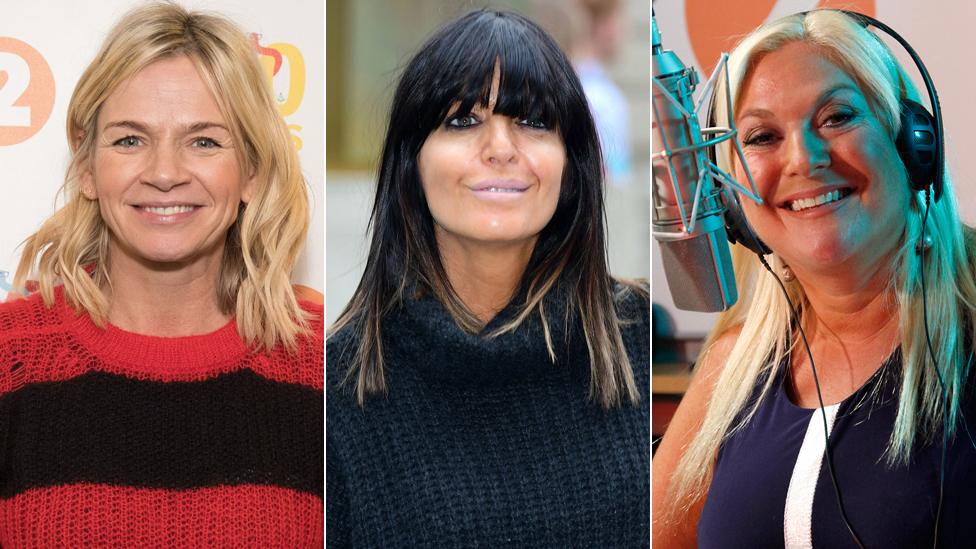
- Published23 July 2017
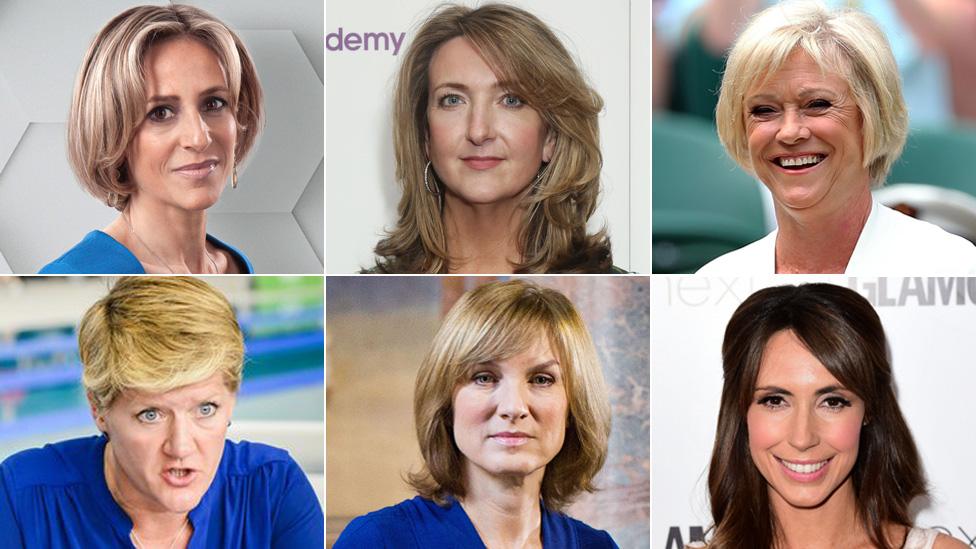
- Published19 July 2017
